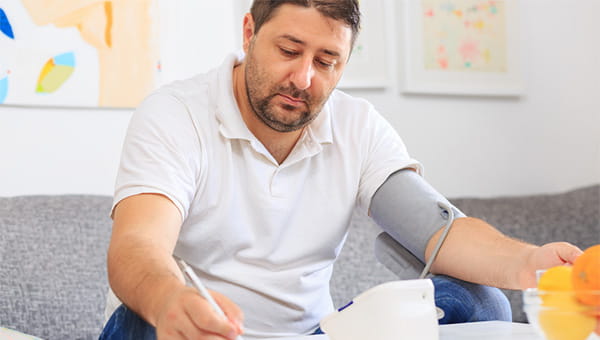The heart is one of the hardest working muscles in the body, beating nearly 2.5 billion times in a 70-year lifetime. However, for those who have suffered a heart attack or are battling heart disease, the hardest working muscle might not be fit as a fiddle. A heart attack occurs when blood flow is blocked to part of the heart for a period of time and part of the heart muscle becomes damaged or dies. You may hear your physician refer to it as a myocardial infarction.
Men’s Markers
Heart attack symptoms can vary between men and women. The most common symptom of a heart attack is chest pain, but there are others that may be missed or can be mistaken for other health conditions. It’s important to know what to look for before a heart attack strikes. Some of the most common signs of a heart attack in men are:
- Chest discomfort such as pressure, squeezing, fullness or pain
- Shortness of breath
- Discomfort in one or both arms, neck or stomach
- Breaking out in a cold sweat or lightheadedness
Make the Change
Prevention of heart disease and heart attack can give you a second chance at a healthier life. There are a variety of risk factors that can be treated, changed or controlled with the help of a primary care physician and a few lifestyle changes.
The six major risk factors that you can have an impact on today include:
- High blood pressure (hypertension)
- Tobacco use
- High cholesterol
- Physical inactivity
- Diabetes
- Obesity
The American Heart Association recommends beginning heart disease prevention early in life, starting by assessing your risk factors and working to keep them low. Talk to your doctor about how to monitor these numbers and stay on track, or visit a BayCare HealthHub screening station, located inside Publix pharmacies near you.
Be Prepared
While heart attack signs may vary between men and women, it’s important to be prepared and not only know the signs, but know where the nearest emergency treatment facilities are that have the capabilities and skill to respond quickly to a heart attack. If you observe these signs in yourself or someone else, call 911 immediately.




